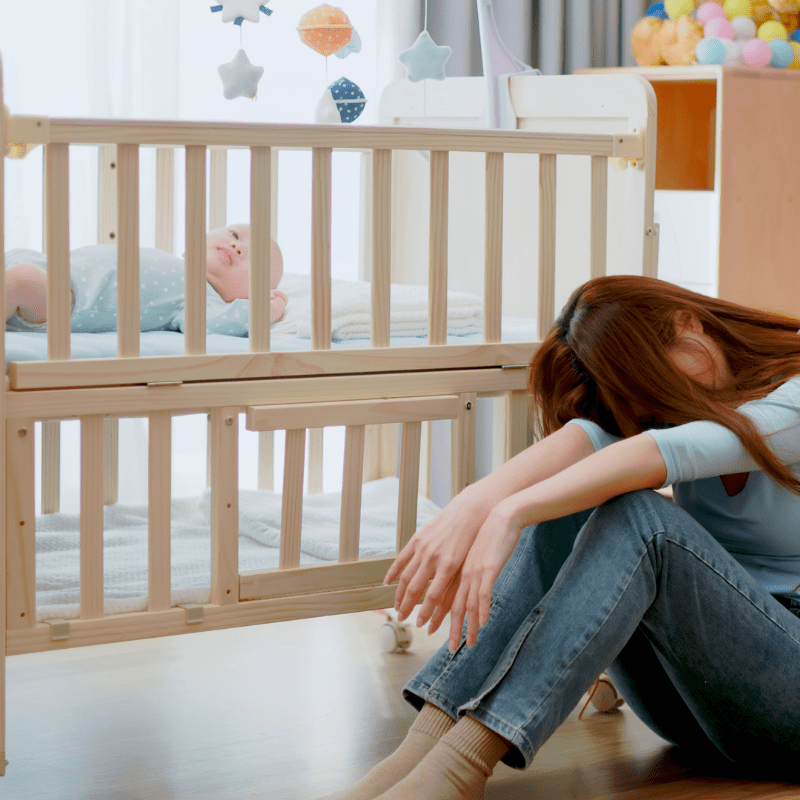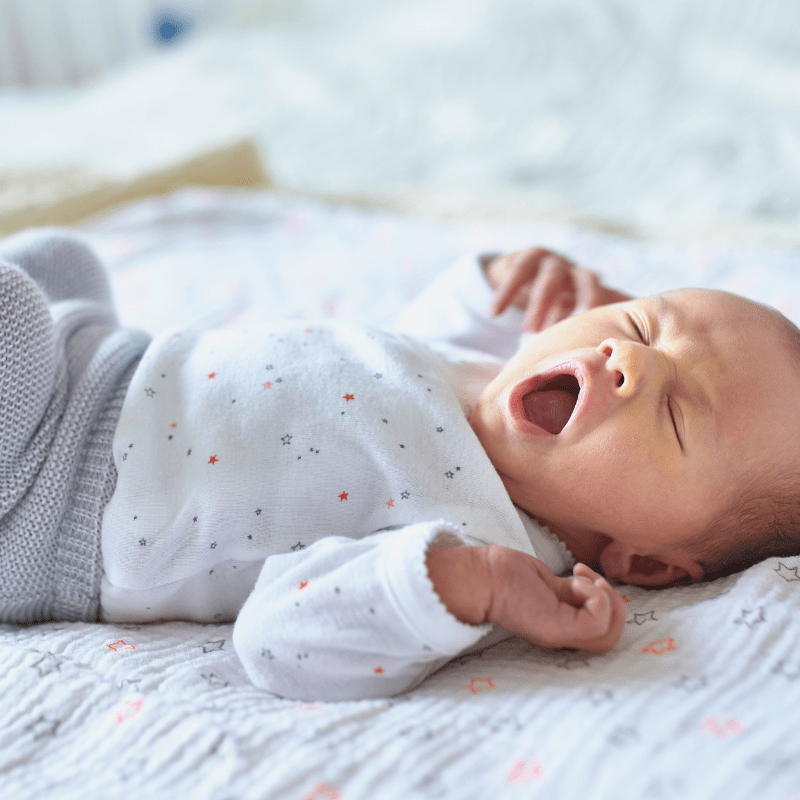Postpartum Depression and Baby Blues

Postpartum depression and baby blues are not what you want to think about when you consider your pregnancy or the first period after delivery. However, it is more common than you might think and, most importantly, there is no shame in it – help is available.
What are baby blues and postpartum depression?
First of all, we need to clarify the difference between postpartum depression and baby blues.
Baby blues
Baby blues, also known as the three-day blues, is a very common – and completely normal – condition for mothers who have just given birth. It is sometimes called the three-day blues because it usually occurs about three days after delivery. For some, it passes quickly, within just a few hours, while for others, it can last up to 2 weeks. Baby blues can vary in intensity; some may feel slightly down, while others feel very sad and anxious.
Common feelings and thoughts during baby blues include:
- Anxiety about parenthood: Will I really be able to handle this?
- Fear of harming your child in some way
- Doubt: Do I even want to have children really?
- General sadness, anxiety, and irritability
Why do you get baby blues?
You have just come home from the maternity ward with your little bundle, and you should be the happiest person in the world, but you are not. You are tired, frustrated, irritable, and filled with hormones from head to toe. All the hormones that your baby needed in your womb are now rapidly subsiding after the baby is out. Your body was so focused on pregnancy and delivery, and now that it's "done," it adjusts both quickly and significantly.
Add to that the possibility that you might have been sleeping too little for a while, eating poorly, and just received the most important gift of your life in your arms. It is no wonder it can be overwhelming and a lot to take in. Baby blues are not dangerous for either you or your child, even though it can be very tough and difficult.
When does baby blues go away?
Baby blues is a milder form of sadness that should pass within 2 weeks. If you still feel low and have heavy feelings after 2 weeks, it could be postpartum depression, and you need to seek help from your child health center, maternity care center, or primary care center. The most important thing to remember about baby blues is that it will pass <3
What about postpartum depression?
Postpartum depression is when the sadness lasts longer than 2 weeks and when you feel very bad. While baby blues is a temporary period of sadness and troubling thoughts, postpartum depression is something that can last longer, sometimes up to 6 months after delivery. It is also important to remember that many factors contribute to postpartum depression. Both the person who gave birth and the other parent can be affected, and it is crucial to seek help as early as possible when you notice symptoms of postpartum depression in yourself or the other parent.
Do I have postpartum depression?
Symptoms of postpartum depression include:
- Sadness and feelings of guilt, hopelessness, and worthlessness
- Difficulty feeling joy, nothing feels fun or good anymore
- Difficulty concentrating
- Difficulty taking care of yourself or the child
- Eating and sleeping too much or too little
- Suicidal thoughts and self-harming behavior
Why do you get postpartum depression?
Just like with baby blues, there are many hormones, emotions, and thoughts in circulation when you have just become a parent. However, many factors contribute, and it is not always possible to say why some people develop postpartum depression while others do not. If you have had periods of sadness, depression, or anxiety earlier in life, it is good to inform your midwife before the baby is born. If you have previously felt very bad, you have a slightly higher risk of developing postpartum depression, and it is therefore wise to connect with a counselor or other support so you are prepared when the baby arrives. This applies to both parents, regardless of whether you are carrying the child or not.
Things you can do yourself
If you suffer from baby blues or postpartum depression, there are several things you can do yourself to feel better. However, if you feel very bad or have thoughts of harming yourself or others, do not wait but seek help immediately. During the day, you can turn to the child health center, and in the evenings and weekends, you should contact the emergency room. If you have suicidal thoughts, call 112.
Try to take care of yourself as much as possible:
- Sleep as often as you can and rest when you need to help your body heal.
- Try to get out in the fresh air. Bring someone with you if you do not want to go out alone.
- Eat food that you enjoy and try to eat as healthily as you can right now.
- Tell your partner, a friend, or another close person that you are feeling bad and do not hesitate to ask for help if you need it.
- Stop looking at social media and feeling guilty because your first period is not as perfect as it seems to be for everyone else. Take a break from social media and focus on yourself, your baby, and your family.
- Dare to talk! Tell your midwife, child health center, or maternity care center how you are feeling. There is no shame in suffering from either baby blues or postpartum depression.
Important contacts if you suffer from baby blues or postpartum depression
- Child Health Center (BVC)
- Maternity Care Center (MVC)
- Your primary care center
- Emergency Room
- 112
Last but not least, take care of yourself <3
- Tags: Fakta Postpartum Ta hand om dig

